DIY Solutions For Aphid Infestations On Roses

Roses are the pride of any garden; I liken these plant species to the “queen of flowers”. Their vibrant blooms and sweet fragrance make them one of the most loved flowers in the world. But if you’ve ever walked out to admire your roses and noticed clusters of tiny green, black, or white bugs clinging to the stems and leaves, you’ve likely met their enemy: aphids.
These soft-bodied pests feed on the sap of your rose plants. They multiply quickly, weaken your roses, and leave behind a sticky substance called honeydew. This honeydew can attract ants and lead to sooty mold. In short, if you ignore aphids, they’ll take over fast.
But here’s the good news—you don’t need to reach for harsh chemicals right away. There are plenty of DIY solutions for aphid infestations on roses that are safe, effective, and budget-friendly. In this post, we’ll cover everything from natural sprays to companion planting, and we’ll answer the top questions gardeners ask about aphids.
As an Amazon Associate, I earn from qualifying purchases
Why Aphids Love Roses
Before jumping into the solutions, it’s worth knowing why aphids target roses so often.
-
Soft, juicy leaves: Roses have tender new growth, which aphids love to suck on.
-
Fast reproduction: Aphids can reproduce without mating, making infestations explode in days.
-
Attractive buds: The sap in unopened rose buds is particularly appealing.
Knowing what draws aphids helps you prevent them. And prevention is always easier than trying to save a plant that’s already struggling.
Signs of Aphid Infestation on Roses

It’s easy to miss aphids at first. They’re small, and they often hide on the underside of leaves. But here are the telltale signs:
-
Clusters of tiny insects on stems, buds, or leaves
-
Curling, yellowing, or distorted leaves
-
Sticky honeydew coating leaves or nearby surfaces
-
Ants crawling all over your rose bush (ants “farm” aphids for honeydew)
-
Black sooty mold forming on leaves
If you see these signs, act now with these DIY solutions.
Varieties of Roses in Bloom

DIY Solutions for Aphid Infestations on Roses
Here are some safe, effective, and affordable methods to get rid of aphids without harming your roses—or beneficial insects like ladybugs.
1. Blast Them Off with Water
One of the easiest ways to control aphids is with your garden hose. Use a strong spray of water to knock them off the stems and leaves. Aphids are weak crawlers, so once they hit the ground, many won’t make it back to your plant.
Melnor Heavy-Duty Garden Hose Nozzle – adjustable spray patterns make it perfect for roses.
Tip: Repeat this every few days, especially in the morning, so your plants have time to dry before nightfall.
2. Soap and Water Spray
A simple DIY spray made from dish soap and water can kill aphids on contact.
Recipe:
-
1 quart of water
-
1 teaspoon of mild dish soap
Mix in a spray bottle and coat the affected areas of your roses. The soap breaks down the aphid’s protective coating, causing them to dehydrate.
Handy tool: HDX 32oz Spray Bottle 3-Pack – durable, adjustable spray heads perfect for DIY solutions.
Note: Use mild, fragrance-free soap. Harsh soaps may damage your rose leaves.
3. Neem Oil Solution
Neem oil is a natural or organic insecticide derived from the neem tree. It works by disrupting the aphid’s ability to feed and reproduce.
How to use:
-
Mix about 2 tablespoons of neem oil in 1 gallon of water
-
Add several drops of dish soap, which will help the oil to stick to the leaves
-
Apply this mixture every 7–10 days until signs show that the infestation is brought under control
Neem oil can also be used to control spider mites and whiteflies.
Garden Safe Neem Oil Extract – safe for roses and effective against aphids, mites, and whiteflies.
4. Introduce Ladybugs
Ladybugs are aphid-eating machines. A single ladybug can eat up to 50 aphids in a day. Laybugs can be purchased online or at garden centers.
Release them in the evening when it’s cooler so they’re more likely to stay on your plants. Provide nearby flowers like dill or fennel to encourage them to stick around.
Garden favorite: Live Ladybugs for Aphid Control – an eco-friendly solution to naturally protect your roses.
5. Homemade Garlic Spray
Garlic is a natural pest repellent. Its strong smell confuses and deters aphids.
Recipe:
-
Blend 2 cloves of garlic with 2 cups of water
-
Strain and pour it into a 32-oz. spray bottle
-
Spray on affected rose plants
Repeat weekly for best results.
Easy option: Mighty Mint Garlic & Peppermint Plant Spray – all-natural and garden safe.
6. Companion Planting
Certain plants naturally repel aphids when planted near roses. Try adding these around your rose bushes:
-
Chives – repel aphids with their strong scent
-
Marigolds – attract beneficial insects that eat aphids
-
Nasturtiums – will draw aphids away from roses. This plant acts as a trap for crops
Companion planting is a long-term, sustainable solution.
Starter packs: Outsidepride Flower & Herb Seeds
7. Prune Heavily Infested Areas
If one branch of your rose bush is crawling with aphids, sometimes the best solution is to prune it off. Dispose of it far from your garden to prevent reinfestation.
Pruning also improves air circulation, which makes your roses less appealing to pests.
Must-have tool: Fiskars Steel Bypass Pruning Shears – sharp, durable, and top-rated for rose care.
8. Banana Peel Trick
A surprising DIY solution is to bury chopped banana peels at the base of your rose bushes. Potassium and other nutrients are known to boost plant health, making roses more resistant to garden pests, including aphids. Plus, some gardeners claim the scent deters aphids.
9. Essential Oils Spray
Essential oils like peppermint, clove, or rosemary can repel aphids.
Recipe:
-
1 quart of water
-
10 drops peppermint oil
-
5 drops of clove oil
Mix and spray directly on affected areas. Test on a small section first to ensure your rose leaves don’t react.
Reader favorite: Handcrafted Peppermint Essential Oil
10. Homemade Tomato Leaf Spray
The leaves of the tomato plant contain alkaloids that are toxic to aphids.
Recipe:
-
Chop 2 cups of tomato leaves
-
Soak them in 1 quart of water overnight
-
Strain and spray on your roses
This is a free, organic way to handle infestations.
Prevention Tips to Keep Aphids Away
After you’ve cleared an infestation, the real trick is making sure those pesky bugs don’t return. A little prevention goes a long way! Here are some simple habits to keep your roses healthy and aphid-free:
-
Check your roses weekly: Pay extra attention to fresh, tender growth where aphids usually show up first.
-
Welcome beneficial insects: Ladybugs and lacewings are natural aphid hunters—think of them as your garden’s built-in pest control.
-
Go easy on fertilizer: Too much nitrogen encourages soft new growth, which is exactly what aphids crave.
-
Keep things tidy: Remove weeds and plant debris so pests have fewer places to hide.
-
Switch up your sprays: If you’re using DIY treatments, rotate them every few weeks to keep aphids from adapting.
- Bonus pick: Miracle-Gro Rose Plant Food – balanced nutrition keeps roses strong and pest-resistant.
With these simple steps, you’ll make your roses less inviting to aphids and save yourself the headache of another big outbreak.
10 FAQs About DIY Aphid Control on Roses
1. What’s the fastest way to get rid of aphids on roses?
Blasting them with a hose or using a soap and water spray works quickly. For long-term control, try neem oil or ladybugs.
2. Are DIY sprays safe for my roses?
Yes, as long as you use mild soap and test sprays on a small section first. Avoid spraying in direct sunlight to prevent leaf burn.
3. Can I use vinegar to kill aphids?
Vinegar is too harsh and can damage rose leaves. It is better to use neem oil, soap, or garlic sprays.
4. Do coffee grounds repel aphids?
Coffee grounds may deter some pests, but they’re not reliable for aphids. They’re better used as compost or mulch.
5. How often should I spray my roses?
Spray every 7–10 days or until the infestation clears. Reapply after rain.
6. Will aphids kill my rose bush?
Aphids rarely kill roses, but they weaken plants, stunt growth, and make them more vulnerable to disease.
7. What natural predators eat aphids?
Ladybugs, lacewings, hoverflies, and birds like wrens and chickadees all feed on aphids.
8. Can I prevent aphids with fertilizer?
Yes. Balanced fertilizer helps roses grow stronger. Avoid high-nitrogen fertilizers, which will encourage soft new growth that attracts aphids like a magnet.
9. Are there indoor-friendly solutions for potted roses?
Yes. Soap sprays, neem oil, and pruning work well for potted roses. Just move them outside when spraying to avoid residue indoors.
10. What if I keep seeing ants on my roses?
Ants protect aphids for honeydew. Control ants by trimming access points and placing barriers around the base of your rose bush.
Conclusion
Aphids are a common problem for rose gardeners, but they don’t have to ruin your blooms. With these DIY solutions for aphid infestations on roses, you can take control without resorting to harsh chemicals. From soap sprays to companion planting, there are plenty of safe, affordable, and effective ways to keep your roses healthy.
Remember, the key is consistency. Aphids reproduce quickly, so regular checks and treatments make all the difference. Combine a few of these methods, encourage natural predators, and enjoy your rose garden without the stress of pests.
Your roses deserve to shine. With the right care, they will.



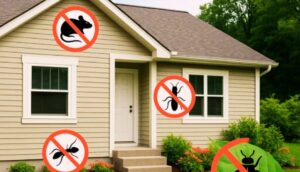
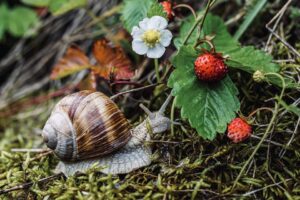
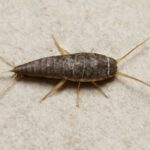
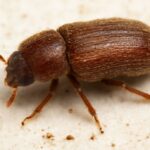
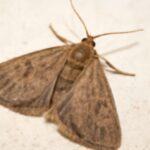
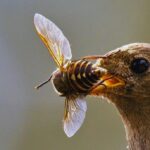
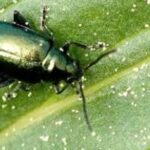
I just took a look at the article on Bugoff Control about DIY solutions for aphid infestations on roses. I think it’s a practical guide—simple, approachable, and full of everyday ingredients like soap, garlic, and even eggshells. The tips on how to effectively use soap sprays, high-pressure water, and natural concoctions really stand out as low-cost and accessible methods.
Testing on a small area: The article wisely suggests testing homemade sprays on a small part of the plant first to avoid leaf damage—but does it offer any guidance on how long to wait before deciding whether it’s safe? A clear timeframe could really help gardeners avoid accidentally harming their roses.
Long-term effectiveness: Many of the natural remedies—like soap sprays or garlic mixtures—require repeated applications. Does the article discuss what to do if aphids keep returning? For example, addressing root causes like over-fertilizing or encouraging beneficial insects could make a big difference over time.
Safeguarding beneficial insects: Since these curious solutions like soap sprays or alcohol could also harm helpful pollinators or predators, does the article provide any tips on how to minimize unintended impact—such as spraying only early in the morning or targeting just the underside of leaves?
Overall, the article feels really user-friendly and encourages thoughtful experimentation. I’d love to hear more about how to incorporate companion planting or beneficial bugs too—do they touch on those strategies anywhere else?
These DIY tips will help in the proper control of aphids!
This was such a helpful and thorough guide! I appreciate how you included not just quick fixes like the hose spray, but also long-term strategies like companion planting and encouraging beneficial insects—it feels very practical and sustainable. I also liked learning about some of the more unexpected tips, like banana peels and tomato leaf spray.
One question I had: do any of these DIY methods work better at certain times of day (like early morning vs. evening), or does timing not really make a difference when treating aphids?